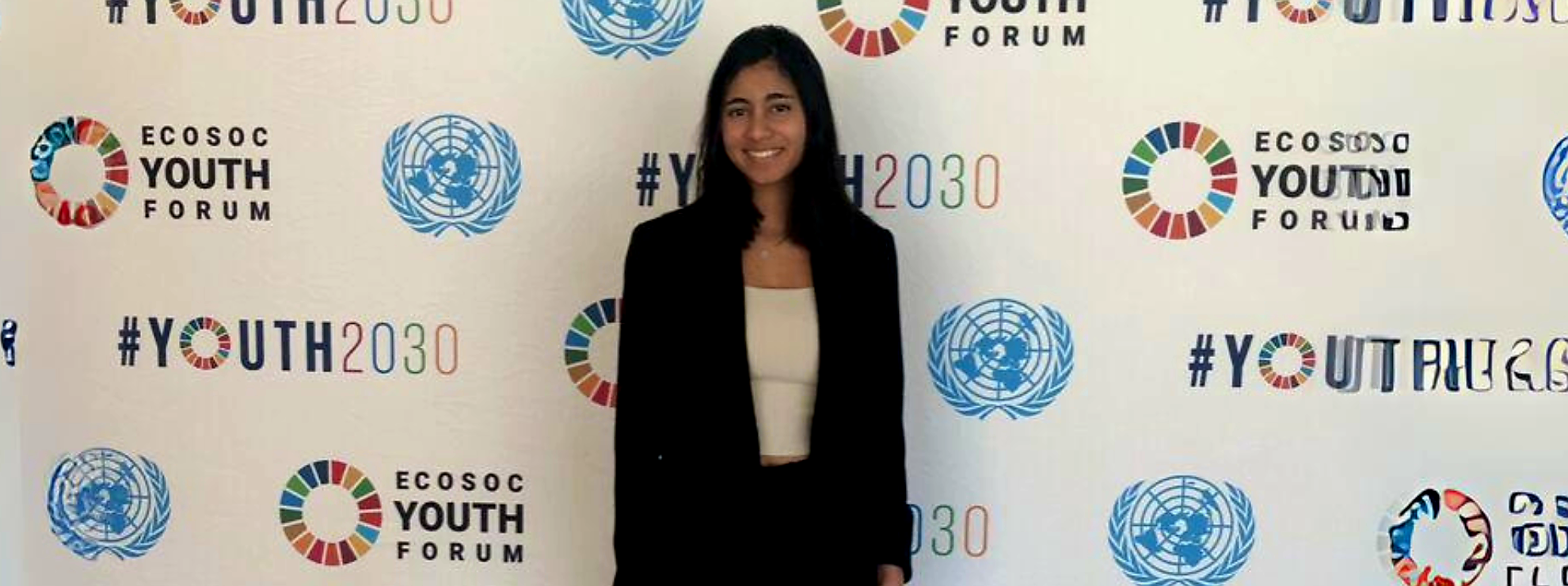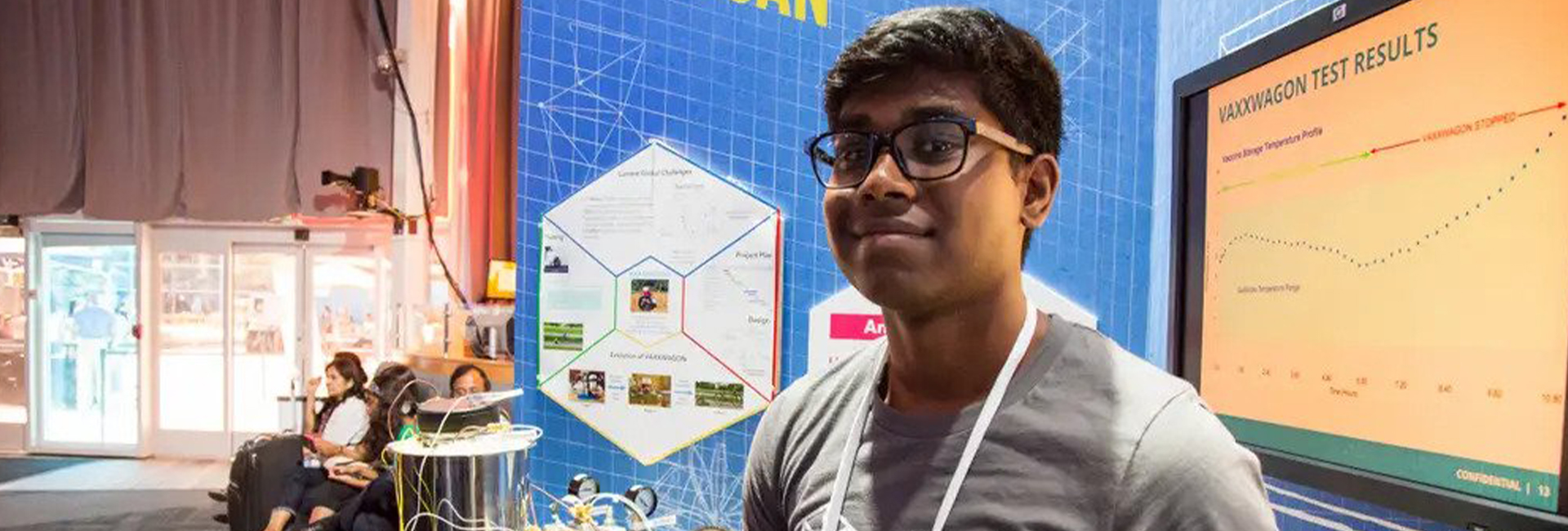(January 13, 2024) Arushi Aggarwal fell in love with programming and robotics when she was 12 years old. What started out with curiosity instantly became a passion, and soon, she was learning robotics, mechanical engineering and programming languages, and attending hackathons. However, she was also quick to spot the inequality within the STEM circles worldwide, and decided to do something about it. It led her to start Unknown16, a non profit that works to bring more young girls into STEM. She also works closely with the state of Bihar, tapping local NGOs there to provide tech education to the less privileged. She’s not just another proponent of STEM, however. Unknown16 is made unique by the fact that it encourages its young students to address social challenges, letting them know they can program their way to a better world. In 2023, Arushi, who is a Forbes India Teenpreneur, was invited to the UN as a delegate with the Economic and Social Council’s Youth Forum.
The GenZ innovator has also developed iBlum, an app that uses gamification to encourage environmental awareness. It motivates individuals and organizations to make eco-friendly choices and community improvements by offering game-like incentives. Businesses participating in iBlum provide perks for environmentally conscious purchases, aligning their brand with social responsibility and appealing to the values of Gen Z consumers. The app generates customized digital coupons for these businesses, enhancing their appeal among environmentally conscious changemakers.
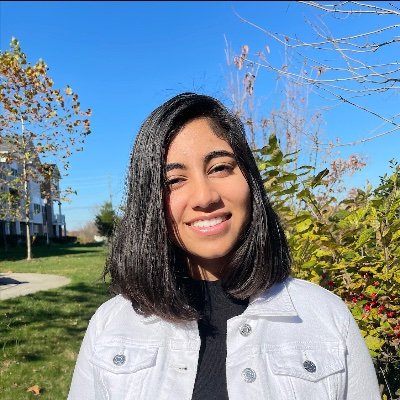
From hackathons to Unknown16
Arushi, who was born in Hisar, spent a few years in Bengaluru and then moved to the US with her family when she was 10 years old. Life in New Jersey was a far, far cry from what she had known in southern Bihar, and Arushi quickly immersed herself in this new world. When she was 12 years old, she decided to try her hand at coding. “I knew nothing about coding before that and just wanted to try new things,” she told Forbes in a podcast. “But after my first year, I fell in love with the concept of building robots from scratch and that’s when I continued doing robotics, mechanical (engineering) and programming. That’s where my love for programming started.”
One year later, in 2016, the Global Indian made it to her first hackathon, the FIRST (For Inspiration and Recognition of Science and Technology) World Championship in Detroit, Michigan. The experience was profound in many ways – this was Arushi’s first broad view of STEM around the world. “I met some all girls teams and suddenly, I realised that on my team, out of 16 members, only two were girls. I was curious about why that was,” she recalls. After a conversation with a girl coder at the championship, she understood that one reason why girls really don’t show up to these big STEM events is a lack of confidence.
“That question led me to start Unknown16,” she says. She wanted to help young girls build confidence, so she designed curriculums, workshops and took classes at their local library. “I taught SCRATCH and Python,” Arushi says. Her thoughts would often wander back to her homestate, Bihar, where so many young kids grow up without access to technology. She began cold-emailing NGOs back home, introducing herself and sharing her curriculum with them.
Project Lahanti
As Arushi networked with NGOs in India, she discovered Project Lahanti, and collaborated with them to take virtual weekend classes. The initiative was an immediate success and soon, Arushi was teaching classes with anywhere between 150-300 children of all ages from villages like Kumbadih and Govindpur.
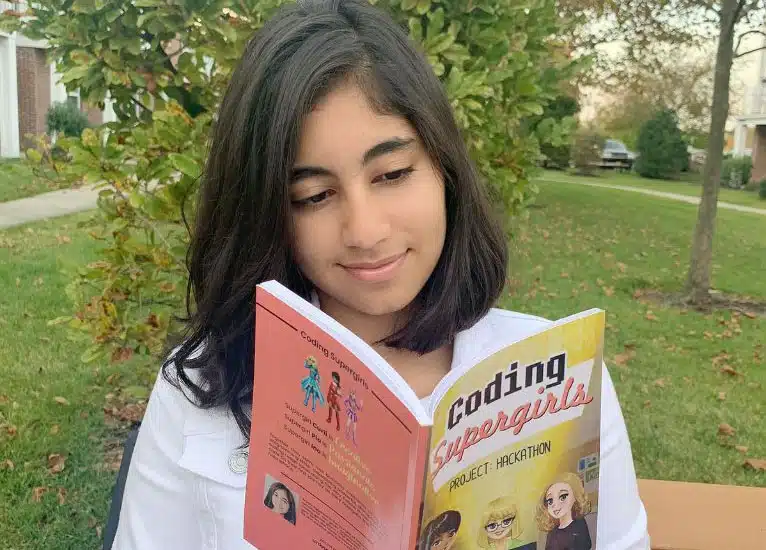

Things weren’t so straightforward, though, as she soon discovered. All programming languages require a basic understanding of English and her students, even if they were intelligent, curious and enthusiastic, did not speak English. This put STEM textbooks out of reach, too.
“In my world, people have difficulty learning programming, or lack certain resources, that was my perspective. But when I started talking to these kids, I saw their perspective. So I decided to teach them English first before they move on to programming.” She began splitting her time between both, teaching English and simultaneously getting students to work with computers. “My family in India really helped out – they donated computers and even went and delivered them,” she smiles. “So I was able to get them acquainted with computers and using programs like Excel.”
That wasn’t all. While her family’s donation did bring computers to the area, there were still daily challenges- sketchy WiFi and power cuts. “Whenever it rained, they would lose WiFi,” she says, in a tone of total disbelief. “The lack of resources to combat daily life challenges prevents them from taking that step. So our job is to say, it’s okay that the barriers exist, we are here to help you overcome them.” She was soon working around an 11-hour time difference, and accepting that if the younger kids couldn’t make it to class because of bad weather, or any other reason, she would have to hold another session during the week.
A multi-faceted approach
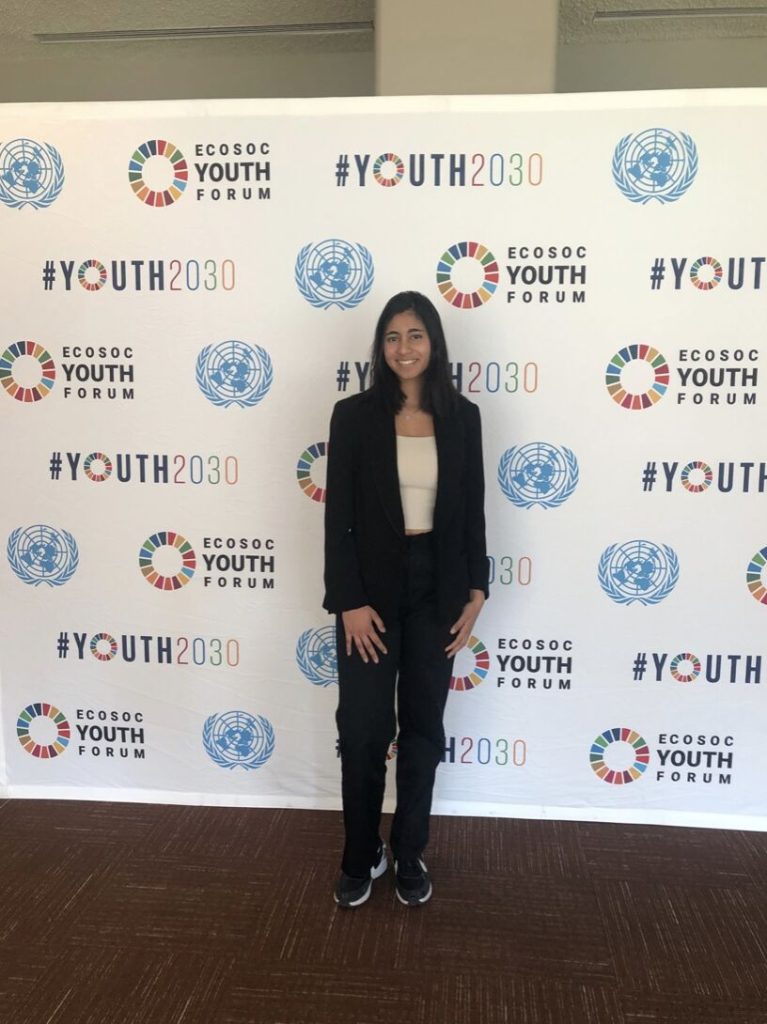

In 2019, Arushi set up a GoFundMe page, to raise funds for textbooks and more technology. She also approached corporates with CSR portfolios, asking them for help. “I learned how to accept a no,” she laughs. Getting more volunteers is also crucial. When taking numerous classes during the week became too much, Arushi shifted her focus to the older students. “I teach college students and they teach the others,” she explains.
Arushi’s approach to spreading awareness truly makes her unique. Storytelling, for instance, is one approach. She has written several books for tweens, including the Coding Supergirls series, about three girls who solve real world problems using their STEM skills, and developing “powerful, disruptive and cutting-edge ideas along the way.” Education and adventure come together in the series, which is meanto entertain and inspire. She is also the organiser of her own hackathon, Code4Cause.
- Follow Arushi on Instagram and learn more about Unknown16 on their website.

